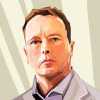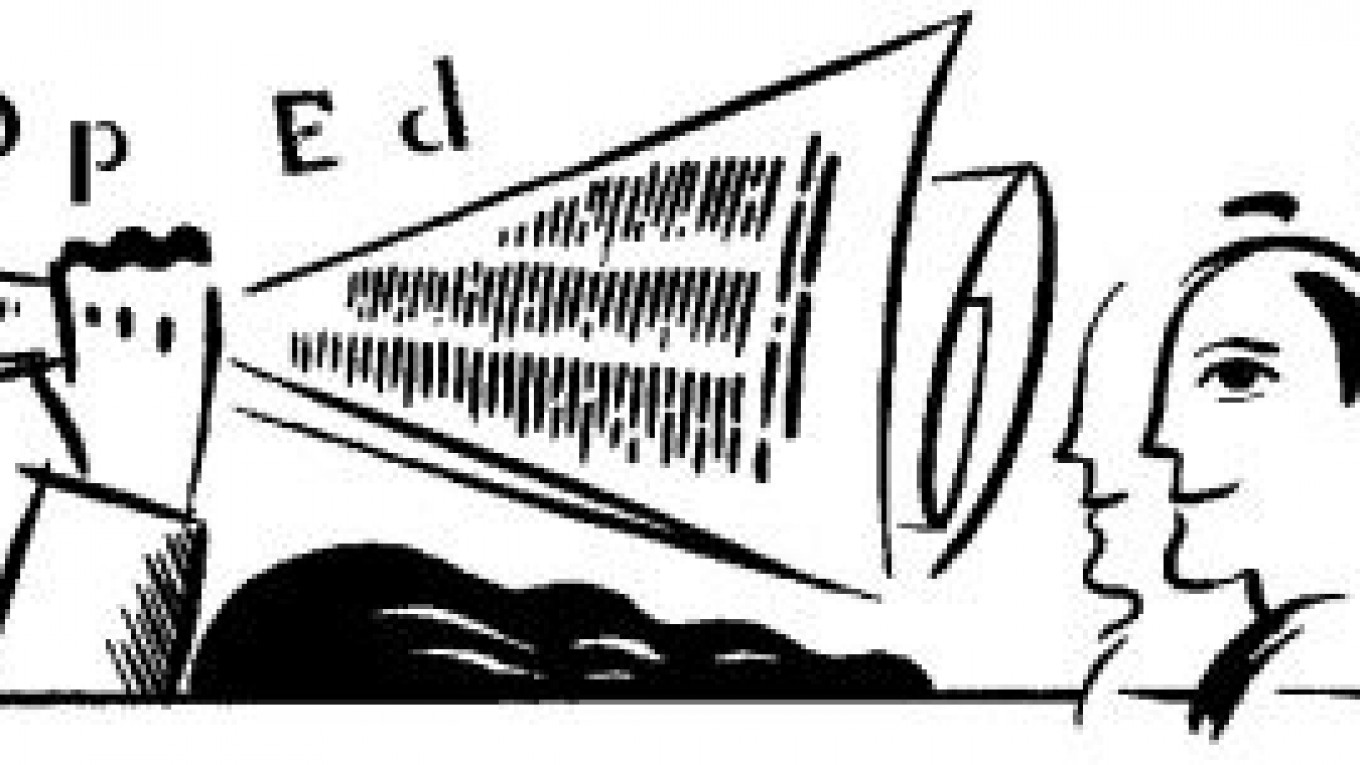As protests in Ukraine continue, it seems worthwhile to consider both their goals and their leaders, some of which have changed since the initial outburst of rage over Ukrainian President Viktor Yanukovych's backtracking on signing the Association Agreement with the European Union.
Over the course of the Yanukovych presidency, there have been some contentious issues. One of them was his decision to promote minority languages in areas of the country in which more than 10 percent of the population speaks them. The language law, sanctioned in August 2012, effectively advanced Russian to the status of a second state language in the eastern and southern regions.
Though divisive and contested, however, language issues have been notably absent from the protests, and some of the most decisive actions against the government and its riot police have been taken by Russian speakers affiliated with the ultra-nationalist Right Sector or fans of various soccer teams that have provided protection for many protesters. Language has not divided Ukraine.
A second and long-contested issue has been the imprisonment of Yulia Tymoshenko, the charismatic leader of the Fatherland party, and a political prisoner serving a seven-year sentence for her actions taken while prime minister under the presidency of Viktor Yushchenko. Her photograph was quite prominent in the peaceful protests of late November and early December, but her case seems to have receded into the background during the protests. There have been no serious attempts to bring about her immediate release, nor has she been able to guide or direct the movement in any way during her confinement.
Several analysts have observed this change in direction of the protests. It began as a movement demanding that the government return to its pro-Western path and transformed into one bent on the removal of the president and his closest associates, such as Prime Minister Mykola Azarov, who has now stepped down. Indeed, it has been the hapless and ill-considered responses of Yanukovych to the mass gatherings — which include beatings, shootings and the draconian laws limiting protests — that have catalyzed the anger of those at the barricades.
Another issue that has slowly risen to the surface is the power of oligarchs over contemporary society. It encompasses the personal wealth and property of the president and his chief backers, who include oligarchs Rinat Akhmetov and Dmytro Firtash. But it also encompasses some supporters of the opposition. The vast gulf between these figures and the general population in terms of wealth is self-evident. For some protesters, the barricades are a better alternative than a low-paying job with few prospects. The key problem of today's Ukraine is corruption and inequality of living standards, one that has been endemic since independence.
Many commentators believe that when opposition leaders met with Yanukovych earlier this week and declined his offer to join his cabinet, it demonstrated the weakness of the president. Perhaps it did. But it also highlighted the dilemma of the main opposition leaders, namely that their own positions would also have been considerably weakened if they had suddenly departed from the protests to the other side of the barricades.
Clearly, the international media has largely restricted its coverage of the opposition to the three main leaders, Arseny Yatsenyuk, Vitali Klitschko and Oleh Tyahnybok. Of the three, only Klitschko seems to have the makings of a national leader. But in many respects even he has found it difficult to lead what has at times appeared, misleadingly, like a headless monster trying to remove a discredited leadership.
Had the opposition leaders joined the Cabinet, the demonstrations would not have ended. They may have taken a different direction — one leading the country into a series of changes outside the parliamentary system that has been in place since the 1990s. These leaders were not behind the seizure of government buildings in the various cities. The protest's regional support has grown impressively outside the capital, even in centers that traditionally might have voted for Yanukovych's Party of Regions in past elections, but this has been a grassroots movement rather than one that is centrally directed.
Revolutions without leaders are like cars descending a hill without brakes. One can never be quite sure where the descent will end and whether the car will survive the impact of the crash. In Ukraine, at each crisis point, the violence of the regime has been met with an equal response by the demonstrators but not always by the same activists. Initially, one saw the flag of Svoboda prominently on the square. In the clashes on the streets, the Right Sector was in evidence. But neither is actually leading the protests. Many observers have noted correctly that the number of peaceful protesters have far outnumbered militants.
In other words, the protests have united Ukraine, perhaps more than at any time during its independence. Opinion polls show that opposition to the protests in the east or south become irrelevant when a focused and determined minority decides to choose its own fate and not wait for the elected government — or opposition — to act. But now, surely it is the time for the latter to take the initiative, to outline its demands and decide on a single leader to face Yanukovych or his Party of Regions successor in early presidential election. If it does not manage to lead the civic movement over the coming days, the result could be chaos and further bloodshed in the streets.
Certain demands seem obvious, starting with the resignation of a president who has used violence, kidnapping and ordered gunfire on his own people. It is no longer enough that Yanukovych should resign. He must be brought to justice for his actions. The new leadership then must pay attention to the demands of the protesters but also focus on a number of immediate questions that need to be resolved.
First is the question of reviving talks with the EU, as well as the issue of a new IMF loan. Whether or not the Russian loan can be revoked or repaid, an alternative path must be mapped out.
Second is the need for new elections and the formation of a democratic coalition that can revive the ailing economy and revamp the structure of the government, most likely by reducing the power of the president and boosting that of parliament. The new leaders would also need to address the failings and inequities of the legal system.
Third, the new Ukrainian government will need to convince Ukrainians that it is committed to the task of rebuilding the country and that it can be trusted. Ukrainians have shown impressive self-organization and commitment over the past nine weeks. In many ways, they have usurped the position of the political opposition and expressed their own will and determination. In doing so, they have created a vacuum of power that a new coalition could fill.
The protests are not evidence of the division of a nation or the start of a civil war. Rather, they demonstrate all of its health and desire to construct a better world for future generations. And Ukraine has done this alone while Europe watched from the sidelines and while Russia tried and failed to offer an alternative path. Opposition leaders, Klitschko and Yatsenyuk specifically, need to take heed of popular demands and show they have the capacity to lead the country. The road ahead for the moment looks clear, but the opportunity will be a fleeting one.
David Marples is a distinguished university professor at the University of Alberta, Edmonton, Canada.
A Message from The Moscow Times:
Dear readers,
We are facing unprecedented challenges. Russia's Prosecutor General's Office has designated The Moscow Times as an "undesirable" organization, criminalizing our work and putting our staff at risk of prosecution. This follows our earlier unjust labeling as a "foreign agent."
These actions are direct attempts to silence independent journalism in Russia. The authorities claim our work "discredits the decisions of the Russian leadership." We see things differently: we strive to provide accurate, unbiased reporting on Russia.
We, the journalists of The Moscow Times, refuse to be silenced. But to continue our work, we need your help.
Your support, no matter how small, makes a world of difference. If you can, please support us monthly starting from just $2. It's quick to set up, and every contribution makes a significant impact.
By supporting The Moscow Times, you're defending open, independent journalism in the face of repression. Thank you for standing with us.
Remind me later.








